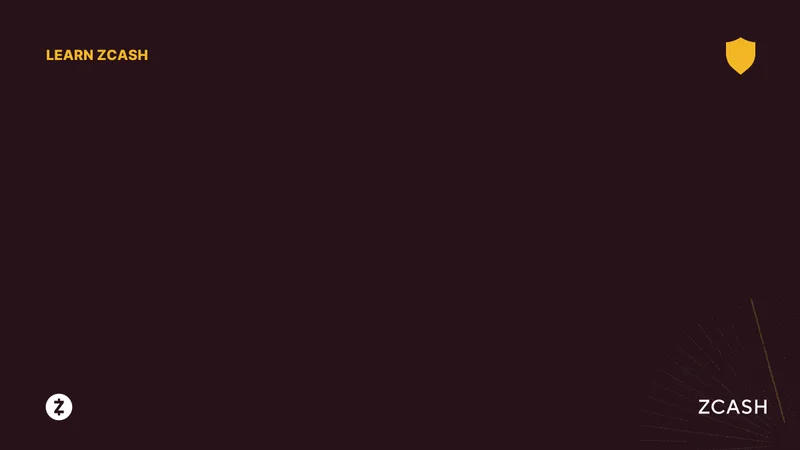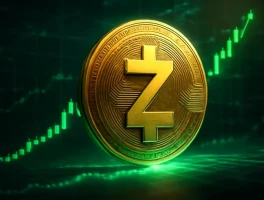Okay, everyone, buckle up. Because what's happening with Zcash isn't just another crypto blip—it's a glimpse into the future of digital currency. And honestly, it's the kind of thing that makes you remember why you got into tech in the first place.
We're talking about a privacy coin, Zcash (ZEC), that's not only surging in value—up 15x since September, can you believe it?—but is also positioning itself as a leader in quantum-resistant cryptography. While Bitcoin stumbles and the wider market dips, Zcash is pulling a double-digit rally. What’s going on here?
A Flight to Safety... and Privacy
The first thing to get our heads around is why Zcash is defying the market trends. We're seeing Bitcoin, which hit record highs not long ago, now struggling. Ethereum, XRP, the usual suspects, all in the red. And then there's Zcash, blazing a completely different path.
It’s all about privacy, friends. And it’s not just about hiding your spending habits from your nosy neighbor, although, yes, that’s a part of it. It's about a fundamental shift in how we view our digital rights. As Galaxy Digital Research Analyst Will Owens put it, Bitcoin's transparency, while initially appealing, has become a double-edged sword. People are starting to crave something more private, something that echoes the original cypherpunk ideals.
And here's where Cypherpunk Technologies comes in. This isn't some fly-by-night operation; it's a Nasdaq-listed firm (up nearly 6%!) backed by Winklevoss Capital. They just dropped another $18 million on ZEC, bringing their total holdings to over 233,000 coins, representing over 1.4% of the entire Zcash supply. That's not just an investment; it's a statement. It's a bet on a future where privacy isn't a luxury, but a necessity. (Read more about it in this Zcash (ZEC) News: Winklevoss' DAT Cypherpunk (CYPH) Buys $18M Tokens article.)
What does this mean for us? Well, the influx of institutional money, coupled with the fact that a significant chunk of ZEC is locked in shielded pools, means liquidity is shrinking. And you know what happens when demand goes up and supply goes down, right?
But here's the kicker: it's not just about scarcity. It's about what Zcash represents.
The Quantum Advantage
Okay, let’s talk about quantum computing. It sounds like science fiction, but it's very, very real. And it poses an existential threat to most cryptocurrencies, including Bitcoin and Ethereum. Why? Because these networks rely on cryptographic systems (like ECDSA and SHA-256) that quantum computers could potentially crack. Imagine the chaos! Imagine your digital wallet suddenly vulnerable.

But Zcash? Zcash is different.
Its shielded transactions, powered by zero-knowledge proofs (zk-SNARKs), hide critical transaction data. This makes it far more resistant to quantum attacks. As Vitalik Buterin himself admitted, Zcash is ahead of the curve when it comes to quantum resistance.
This isn't just theoretical. This is about building a digital currency that can withstand the test of time, even as technology advances at breakneck speed. And that's why Zcash is surging. People are starting to realize that it's not just a privacy coin; it's a future-proof coin.
Of course, Zcash isn't completely invulnerable. As core developer Sean Bowe pointed out, there's still work to be done. But the fact that the Zcash team is already thinking about these challenges, actively researching post-quantum proof systems, puts them miles ahead of the competition.
And you know what? The community is noticing.
I saw someone on Reddit put it perfectly: “Zcash is like the digital Swiss bank account of the future.” That's the kind of sentiment that drives real change.
Now, a moment of caution. With great power comes great responsibility. As we embrace privacy-enhancing technologies, we must also be mindful of their potential misuse. We need to ensure that these tools are used to empower individuals, not to shield illicit activities.
So, What's the Real Story?
Zcash isn't just a cryptocurrency; it's a symbol of hope for a more private, secure, and quantum-resistant future. It's a reminder that innovation isn't just about making things faster or cheaper; it's about building a better world. And honestly, that's something worth getting excited about.


